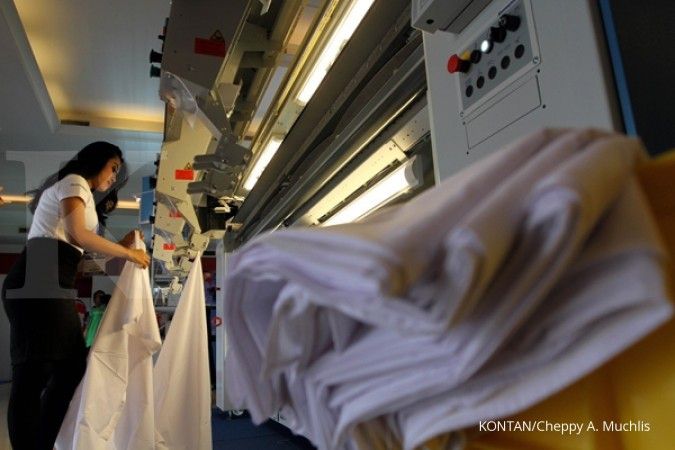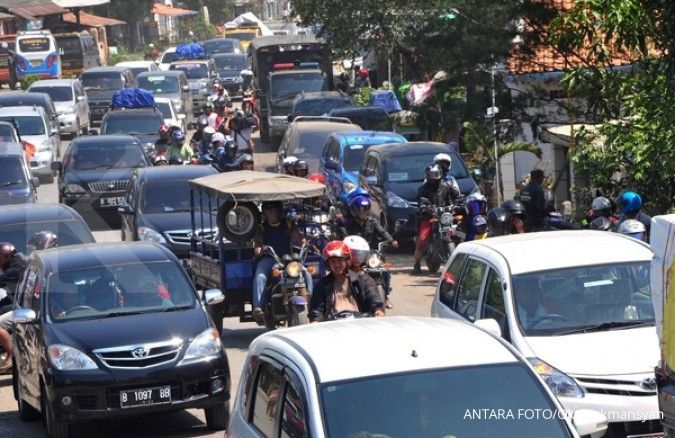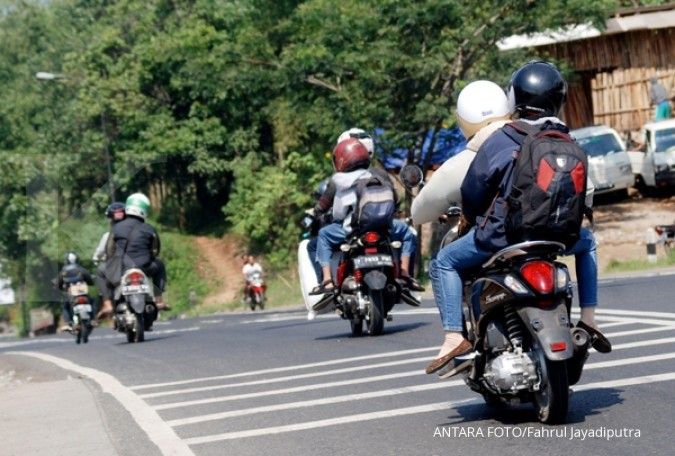JAKARTA. “My Lord, whoever will be the president is OK. What’s important to me is, please return our mbak to us,” businessman Subagya Haryanto writes in this amusing prayer on his BlackBerry.
For the middle-aged man, apparently it was far more important to him that God send his maids back after they went home for Idul Fitri than the nation’s headache about who will be the next president. Joko “Jokowi” Widodo has been officially declared the winner of the July 9 presidential race, but rival Prabowo Subianto has refused to concede defeat.
During the Idul Fitri holiday, Jakarta residents who were left by housemaids who returned to their hometowns scrambled to cope with housework while their helpers were away. Every year, millions, including housemaids, return to their hometowns to spend Idul Fitri with their families in a tradition called mudik.
According to the National Network for Domestic Workers Advocacy (Jala PRT), Greater Jakarta (Jabodetabek) is currently home to about 3 million housemaids, which makes up about 25 percent of the total number of housemaids in the country.
For example, Leslie Thirtabrata, who lives in Kemang, South Jakarta, said she employed a temporary housemaid while her three domestic helpers returned to their hometowns. “I employed a temporary housemaid from a maid agency to work during the holiday. I don’t know what I would do without her,” Leslie told The Jakarta Post over the weekend.
Temporary housemaids, which are paid up to four times the average salary of regular housemaids, are commonly hired by Jakartans during the Idul Fitri holiday while their maids are away. Currently, the salary for regular maids in Jakarta ranges from Rp 600,000 (US$50.84) to Rp 1.5 million per month.
Leslie, who is a housewife, said she had gotten used to the help of her three maids, whom she pays Rp 1 million to Rp 1.5 million each per month. “I help the temporary housemaid do her job. I know it must be difficult doing all the chores alone,” she said.
Leslie said that she lived in the house with her husband and two children.
Meanwhile, Terry Shameem, a diplomat at the Surinamese Embassy, said his two maids were scheduled to return on Aug. 11. “We do the housework ourselves. Everybody has their own chores. It is little bit difficult doing the work ourselves,” Shameem told the Post over the weekend.
Shameem, who lives in Cilandak, South Jakarta, said it was not common to have a maid in Suriname. “I live with my wife and two sons. The kids sometimes complain [when they have to do housework]. So my wife and I do the cleaning [while the maids are away],” he said.
Meanwhile, Kate Morris, a housewife who lives in Kemang, South Jakarta, also had a difficult time adapting to life without a housemaid. “It’s not very common for Americans to hire a housemaid, but I’ve gotten so used to having one in
Jakarta that I rarely ever clean the house myself,” said the 40-year-old American.
She added that her maid, who has worked for her for two years, returned on Saturday. “I was so grateful when she finally came back. I guess she enjoys working with us,” she said.
Jala PRT coordinator Lita Anggraini said that being a maid was no longer a popular occupation. “There is no law that regulates the employment of maids. Maids have no social protection, which is why it’s not a very popular occupation,” Lita told the Post over the weekend. (Dewanti A. Wardhani)
Sometimes maids more needed than president
August 04, 2014, 10.37 AM
/2011/12/05/1553901866.jpg)
ILUSTRASI. Cara Download Anime Kage no Jitsuryokusha ni Naritakute dan Nonton Full Epsiode 1-20
Source: The Jakarta Post
| Editor: Hendra Gunawan
Latest News
-
February 24, 2026, 03.38 PM
Eni to Reach Final Investment Decision for Indonesia Gas Projects Next Month
-
February 24, 2026, 01.00 PM
Asia Stocks Try to Steady after Wall Street Selloff Sims Mood
-
February 23, 2026, 04.50 PM
Wall Street Futures and Dollar Slide on Trump Tariff Tumult
-
February 23, 2026, 02.17 PM
Indonesia's Government Spending Jumps 26% in January 2026
-
February 23, 2026, 01.47 PM
Indonesia's Government Spending Jumps 26% in January
-
February 21, 2026, 06.00 AM
Indonesia's Pertamina to Maintain Bidding Process for US Energy Imports
-
February 20, 2026, 01.23 PM
Indonesia Secures 19% Tariff Deal with US, Palm Oil and Other Commodities Exempt
-
February 20, 2026, 08.33 AM
Indonesia, US Sign Agreement on Reciprocal Trade, Indonesian Ministry Says
-
February 19, 2026, 08.12 AM
Indonesia, Freeport Units Sign MoU to Extend Mining Permit beyond 2041














